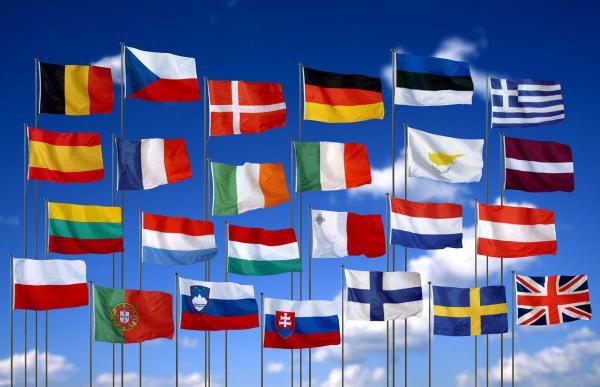UU scaling down international recruitment
International students very much needed, say eight higher education institutions

“In the next few decades, hundreds of thousands of highly skilled professionals will be needed in the Netherlands. Labour market shortages will only increase if we don't take adequate measures,” the institutions write in an opinion piece published in the national newspaper NRC (available in Dutch only, Ed). Moreover, students from abroad play an important role in ensuring the international orientation of degree programmes, they argue.
The piece was written by administrators from four research universities (Tilburg, Maastricht, Twente and Groningen) and four universities of applied sciences (Saxion, BUas, Amsterdam University of the Arts and HAS).
Active recruitment
The op-ed is a response to the House of Representatives passing a motion stating that higher education institutions should stop “actively” recruiting international students until the Minister of Education, Robbert Dijkgraaf, introduces new measures to manage the influx of international students, deemed excessive by some MPs.
At research universities, forty percent of first-year Bachelor’s and Master’s students are international, which often leads to problems in the housing market. In some cases, this also makes it more difficult for Dutch students to gain admission to programmes that only allow a specific number of students to enrol each year.
Minister Dijkgraaf plans to present his strategy on how to handle the intake of international students early next year. Many parties in the House of Representatives, however, feel that things are moving too slowly. They find it strange that institutions are continuing their recruitment efforts despite the aforementioned problems.
Agreement
In an ‘administrative agreement’ signed earlier this year, the universities promised the minister to exercise “considerable restraint” with regard to international recruitment, “unless located in depopulating regions and/or recruiting for degree programmes that are crucial for sectors facing personnel shortages”.
There is no such agreement for universities of applied sciences, which expect to attract fewer students in general in the near future. International students could help maintain the availability of higher education in non-central regions.
The eight administrators feel that the House of Representatives should not block current policy. “With one show of hands, the House is putting these institutions in big trouble,” the op-ed reads. “Not recruiting internationally will lead to a sharp decline in enrolments. In turn, fewer enrolments will lead to an enormous drop in funding – high double-digit percentages are not impossible.”
Economic benefits
The authors also point out the economic benefits of welcoming international students. While these do indeed exist, the facts presented by the eight administrators are not entirely correct.
They seem to think that foreign students in the Netherlands already make significant contributions to the economy during their studies. They base this argument on a study by the Netherlands Bureau for Economic Policy Analysis (CPB), citing amounts ranging from 5,000 to 17,000 euros for European students and a minimum of 69,000 euros for students from outside Europe.
But according to CPB, these benefits mainly come after graduation, thanks to the students who stay in the Netherlands for work. The average amount is 5,000 euros per European student at a university of applied sciences and 17,000 euros per European student at a research university. For students from outside Europe, the amounts are 69,000 and 96,000 euros, respectively. The figures for the latter group are higher because the government does not financially contribute to their studies.
Meanwhile, Germany is planning to recruit 400,000 highly skilled migrants a year to combat labour shortages. Referring to these plans, the administrators write that international students are “part of the solution and not the problem”.
Utrecht University's position
UU is really conservative when it comes to recruiting international students, stated the university's President, Anton Pijpers, in a meeting with the University Council held on December 5. He was reacting to questions posed by the press following the Parliament motion telling universities not to actively recruit students abroad.
Pijpers said that UU's policy is not to participate in recruitment fairs abroad. Last year, that's exactly what the university did (at least at a central level) and there are no plans to take UU to these fairs next year, either. “We also asked the deans of all faculties not to go."
However, the university does need students from abroad to provide an international classroom, as well as for certain degrees, such as University College Utrecht and University College Roosevelt. "We focus on quality, so we're looking into which programmes need international students. But nobody is waiting for this kind of nuance," wrote Pijpers in a nod to the article published by the Dutch newspaper Telegraaf (available in Dutch, without a paywall, via Nexis Uni, Ed.) which did not include UU's answers.
UU's Presdent also declared that the university is "not directly under the magnifying glass" because it has the lowest number of international students among all universities in the country, except for the University of Nijmegen. "But there are some programmes with a lot of foreign students, of course, but that's where international students are useful and necessary. Let us be clear about that." (by Gwenda Knobel, translated by Marjorie van Elven)